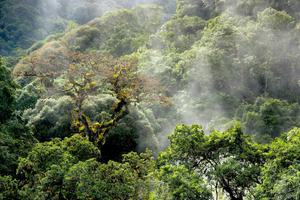The Milne Ice Shelf in Canada lost nearly 40 percent of its ice over a two-day period in late July. ECCC Canadian Ice Service
Canada’s last fully intact ice shelf in the Arctic has collapsed, shrinking by about 80 square kilometers, or 40 percent of its area, over just two days at the end of July, according to scientists at the Canadian Ice Service. The breakup of the ice was driven by record-setting temperatures in the region, which have measured 5 degrees Celsius (9 degrees Fahrenheit) above the 30-year average this summer.
“Entire cities are that size. These are big pieces of ice,” Luke Copland, a glaciologist at the University of Ottawa who was part of the research team studying the Milne Ice Shelf, located on Ellesmere Island in the Canadian territory of Nunavut, told Reuters. “This was the largest remaining intact ice shelf, and it’s disintegrated, basically.”
A research camp was lost in the collapse of the ice shelf. So was the northern hemisphere’s last known epishelf lake, a freshwater lake damned by ice that floats atop salty ocean water. In addition, two of Canada’s ice caps, located on the Hazen Plateau in St. Patrick Bay, disappeared completely this summer, two years earlier than scientists predicted, according to the National Snow & Ice Data Center (NSIDC) in Boulder, Colorado.
“When I first visited those ice caps, they seemed like such a permanent fixture of the landscape,” Mark Serreze, director of NSIDC and a geographer at the University of Colorado, Boulder, said in a statement. “To watch them die in less than 40 years just blows me away.”
The Arctic has warmed at a rate twice the global average in recent decades, but scientists say this summer has been even more extreme. In July, Arctic sea ice hit its lowest recorded extent. And the Russian Arctic has experienced record heat and wildfires, with temperatures exceeding 100 degrees F in the Siberian town of Verkhoyansk in late June.



